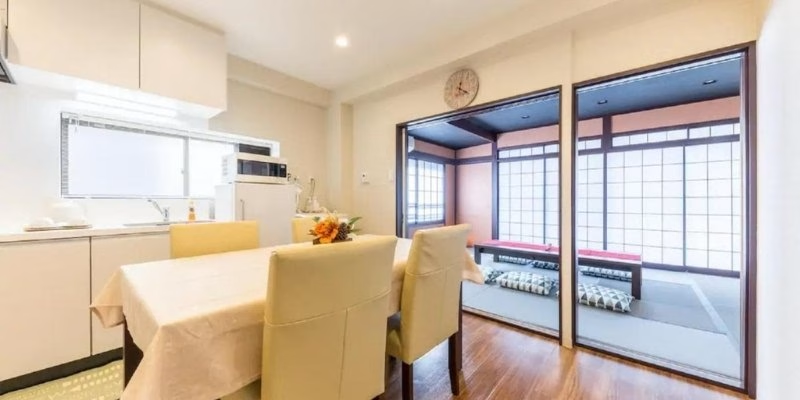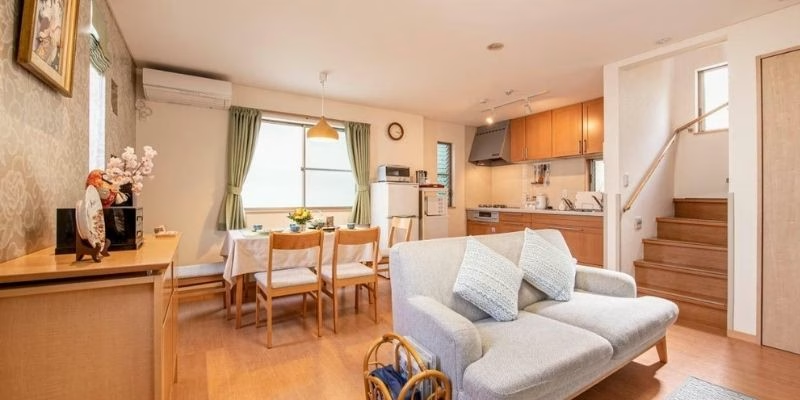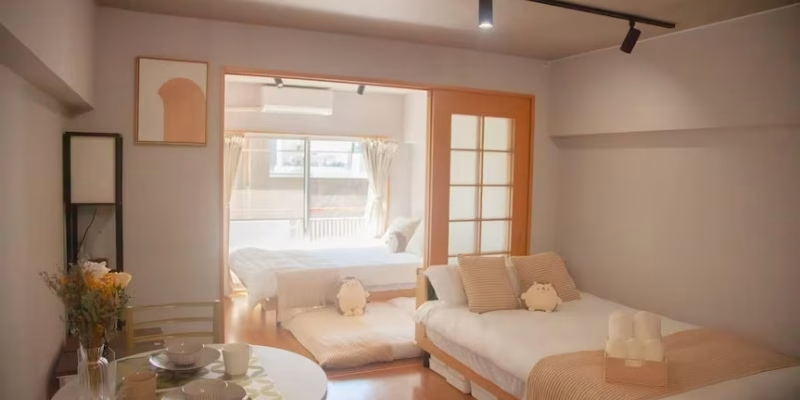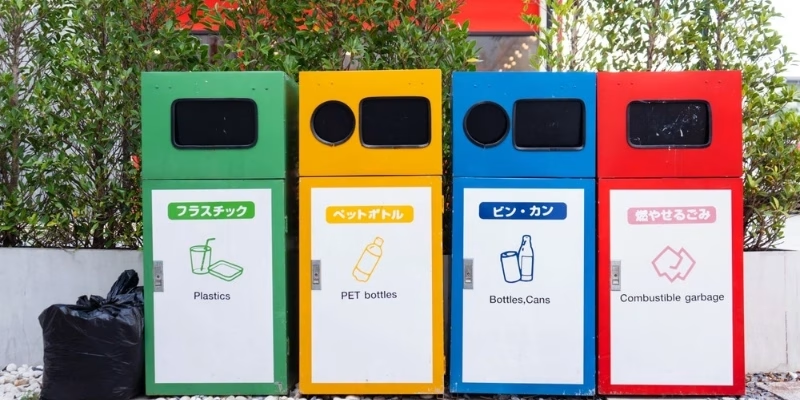Securing an apartment for rent Japan often involves navigating unique terms. One of the most significant is “key money” (reikin). For expatriates seeking rent in Tokyo or any major Japanese city, grasping this concept is essential for financial planning. Key money represents a non-refundable lump sum payment made to the landlord at the beginning of the lease.
This fee is not a security deposit; it’s considered a gratitude payment for the privilege of moving into the apartment. Historically, it helped fund the landlord’s expenses. Today, it’s primarily a traditional practice. This practice significantly increases the initial moving costs.
What is Key Money (Reikin) and Why Does It Exist?
Key money, or reikin (礼金), is a customary fee in the Japanese rental market. It’s a payment that does not count towards future rent or cover damages. This payment is typically equivalent to one to two months’ rent. However, in prime areas like Shinjuku or Shibuya, it can sometimes be higher.
The prevalence of key money stems from post-World War II housing shortages. Landlords had the leverage to demand extra payment from eager tenants. While the housing market has changed drastically, this tradition persists in many parts of Japan. It’s crucial to distinguish it from other initial fees:
- Security Deposit (Shikikin): This is refundable. The landlord holds it to cover any damages beyond normal wear and tear. It also covers any unpaid rent upon moving out.
- Key Money (Reikin): This is non-refundable and goes directly to the landlord as an upfront fee.
Understanding these initial financial obligations helps international renters budget effectively for their move to Japan. Initial costs for securing a rental apartment frequently total 4 to 6 months’ worth of rent. These costs include the first month’s rent, a security deposit, key money, and agency fees.

The Rising Trend of No Key Money Apartment Japan
A modern and increasingly popular alternative for budget-conscious tenants is the no key money apartment Japan option. This category of properties, often marketed as Reikin Nashi ($礼金なし$), entirely eliminates the key money fee. This trend has gained momentum, especially in areas with high competition and a younger demographic.
The main benefit is a dramatic reduction in upfront costs. For example, if the monthly rent is ¥150,000, a “no key money” option saves the tenant immediately. The savings range between ¥150,000 and ¥300,000. This specific savings figure represents 1 to 2 months’ worth of rent. The standard reikin amount typically varies based on the landlord’s policy and the apartment’s desirability in the market. Eliminating reikin is a smart financial strategy that significantly reduces the initial burden on the tenant.
Why Landlords Offer No Key Money Apartments
Landlords are increasingly waiving key money to address current market realities and attract tenants quickly. They do this for several compelling reasons:
- High Vacancy Rates: In areas experiencing declining populations, landlords find it more advantageous to secure a tenant quickly. They prioritize a prompt arrangement even without reikin. For older properties that take longer to rent, this approach is also beneficial. Securing consistent monthly rent outweighs the one-time fee.
- Increased Competition: The sheer volume of available rental units is significant. This is especially true in densely populated cities like Tokyo. As a result, property owners are driven to offer more attractive terms. The market demand from financially sensitive renters forces this adaptation.
- Appealing to Specific Demographics: Many modern property management companies and landlords target specific groups. They primarily focus on foreign residents or young professionals. These individuals are often sensitive to high moving costs. This approach is particularly common among those catering to the expatriate community.
- Tax Advantages: Some institutional landlords prefer a higher recurring rent. This is favored over a large upfront, one-time reikin payment. This preference aligns with specific business models.
Apartments offering this benefit are readily available across Japan’s major metropolitan areas, and they are not limited to undesirable locations. Specific examples of areas where “no key money” listings are common include:
- Suburban Tokyo (e.g., Saitama and Chiba prefectures, which offer more budget-friendly options compared to central wards like Minato or Chiyoda). These areas provide excellent value.
- Properties requiring immediate occupancy (e.g., listings that have been vacant for several months, often indicated by steep initial cost reductions or the inclusion of discounted first-month rent). This signals a strong motivation to fill the unit.
Strategies for Securing Your Ideal Apartment for Rent Japan
Finding the right apartment for rent Japan requires a systematic approach. This is especially true for non-Japanese speakers navigating the stringent Japanese application process. Key steps involve preparing necessary documentation, understanding the roles of agents, and managing financial expectations.
How to Effectively Find ‘No Key Money’ Apartments (Reikin Nashi)
Targeting and securing a no key money apartment Japan requires specific search strategies. This is especially important when dealing with online listings and real estate agents. Tenants must be proactive and utilize the correct Japanese terminology.
- Mastering Online Search Filters: When utilizing major Japanese online property portals, such as SUUMO, AREALTY, and LIFULL HOME’S, use the Reikin Nashi filter. This step is mandatory. Advanced users should also simultaneously filter for Shikikin Nash (No Security Deposit) to maximize initial savings.
- Target Government and Corporate Housing: Focus on large-scale property providers. They operate on a volume-based model. Initial fees are often reduced or eliminated to ensure high occupancy rates.
- UR Housing: As mentioned, these properties are guaranteed No Key Money. They should be a priority for extreme budget savings.
- Major Rental Chains: Companies like Leopalace 21 frequently run campaigns. These campaigns offer Reikin Nashi and Shikikin Nashi deals. They are especially common during off-peak seasons (late summer to early winter).
- Timing the Market: The Japanese rental market peaks from January to March, driven by student graduations and corporate transfers. This is when competition is highest, and landlords are least likely to waive reikin. Conversely, searching during the off-peak season (July to September) yields better results. During this time, landlords are more motivated to offer No Key Money incentives to fill vacancies.
- Leveraging Bilingual Agents: Clearly and firmly communicate to your agent that the No Key Money requirement is non-negotiable. A specialized bilingual agent, like those at AREALTY, will have the professional network needed to prioritize apartments. They also have listing access to secure apartments that meet this fundamental financial criterion.

Advantages and Disadvantages of No Key Money Apartment Japan
The elimination of key money (reikin) offers significant financial relief. Choosing a no key money apartment in Japan is a strategic decision. It comes with both clear benefits and potential drawbacks. Tenants must evaluate these factors to ensure the property meets their long-term living requirements in Japan.
Advantages
The benefits of selecting a Reikin Nashi apartment are mainly financial. They are also immediately tangible. This makes them highly attractive to expatriates and budget-conscious residents.
- Drastic Reduction in Upfront Costs : This is the paramount advantage. By eliminating the non-refundable reikin fee (typically 1 to 3 months’ rent), the tenant can reduce their initial moving expenses. The decrease can range from 20% to 40%. This saved capital can be immediately utilized for furnishing the home, purchasing appliances, or building an emergency fund.
- Faster Move-in Process: Properties that waive key money often signal a landlord’s eagerness to fill the vacancy quickly. This motivation can create a more efficient application and approval process. It reduces the time spent searching for and securing an apartment for rent Japan.
- Increased Budget Flexibility : Avoiding a large, non-refundable lump sum payment provides tenants with greater liquidity. This financial flexibility is especially valuable for newcomers in rent in Tokyo who face numerous unexpected setup costs.
- Wider Availability through Major Providers: Many modern, large-scale property management companies and government-backed entities promote Reikin Nashi as a standard offering. They aim to make it a standard. An example is Arealty. This promotion increases the inventory of available listings for international renters.
Disadvantages
These properties are highly beneficial financially. However, they may have certain trade-offs. Tenants must meticulously consider these regarding location, quality, and contractual terms.
- Potentially Higher Monthly Rent : Some landlords who waive key money set the monthly rent slightly higher. This compensates for the lost upfront income compared to comparable key money apartments. Tenants must calculate the total cost over the full two-year lease term to verify true savings.
- Location or Property Age : Reikin Nashi apartments are sometimes older properties. They may also be located further from major train stations or central areas. This is a common incentive used by landlords to attract tenants to less prime real estate. Specific examples: Properties located more than a 15-minute walk from a major station, or apartments built before the year 1990.
- Higher Renewal Fees : To offset the lack of upfront key money, some contracts impose a higher-than-average renewal fee (koshin-ryo). This fee may exceed one month’s rent if the tenant chooses to extend the lease after two years.
- Higher Cleaning or Restoration Fees: In rare cases, the landlord is stricter about the final cleaning costs. They deduct a larger portion of the security deposit (shikikin) upon move-out. This requires the tenant to be extremely diligent in maintaining the property and documenting its condition upon entry.
Financial Planning: Comparing Rental Scenarios
When budgeting for rent in Tokyo, it is beneficial to compare a traditional rental. You should also consider a no key money apartment Japan option. This comparison clearly highlights the financial advantage of avoiding key money.
| Expense Category | Traditional Apartment (2 months Key Money) | No Key Money Apartment |
| Monthly Rent | ¥150,000 | ¥150,000 |
| Security Deposit (Shikikin) | ¥150,000 (1 month) | ¥150,000 (1 month) |
| Key Money (Reikin) | ¥300,000 (2 months) | ¥0 |
| First Month’s Rent | ¥150,000 | ¥150,000 |
| Agency Fee | ¥165,000 (1 month + tax) | ¥165,000 (1 month + tax) |
| Insurance/Other Fees | ¥50,000 | ¥50,000 |
| Total Initial Cost | ¥815,000 | ¥515,000 |
Note: All figures are illustrative examples based on a ¥150,000 monthly rent.
The savings of ¥300,000 in this scenario can be substantial. This amount allows tenants to allocate funds toward furnishing, travel, or other necessary relocation expenses. Choosing a no key money apartment is a financially savvy decision, especially for individuals moving on a tight budget
Finding Your No Key Money Solution in Rent in Tokyo
Finding a property that fits your budget and preferences can be challenging in a competitive market like rent in Tokyo. Avoiding unnecessary upfront fees adds to the challenge. This is where AREALITY excels. We specialize in connecting international residents with landlords. They offer flexible, foreigner-friendly leasing terms. Our portfolio includes a vast array of no key money apartment Japan listings.
AREALITY simplifies the relocation process by offering:
- Bilingual Support: Our team speaks fluent English and other major languages, ensuring clarity in every step of the transaction.
- Transparent Cost Breakdown: We provide a clear, itemized list of all first costs before you apply, eliminating hidden fees.
- Exclusive Listings: We have established strong relationships with property managers who actively offer Reikin Nashi apartments to our clientele.
Ready to start your stress-free apartment search in Japan?
Contact AREALTY today. Browse our exclusive no key money apartment Japan listings. Secure your perfect home with minimal upfront investment! Call us or visit our website to book a consultation. This strategic step ensures a smooth transition to your new life.

Conclusion
Understanding Key Money Explained Japan is the first definitive step toward a successful apartment search. While reikin remains a common tradition, the market is continually evolving. There are ample opportunities for securing a no key money apartment Japan. Saving hundreds of thousands of yen on upfront costs benefits international residents. It allows them to allocate their finances more effectively towards settling into their new environment.
When expatriates work with specialized, professional real estate partners like AREALTY, they confidently handle complex documentation. They also manage guarantor requirements and tackle traditional fees. Prioritize listings that offer the Reikin Nashi benefit and ensure transparent communication with your agent. This strategic approach minimizes initial expenses and facilitates a smoother, more cost-effective experience with rent in Tokyo and across Japan.





Leave a Reply